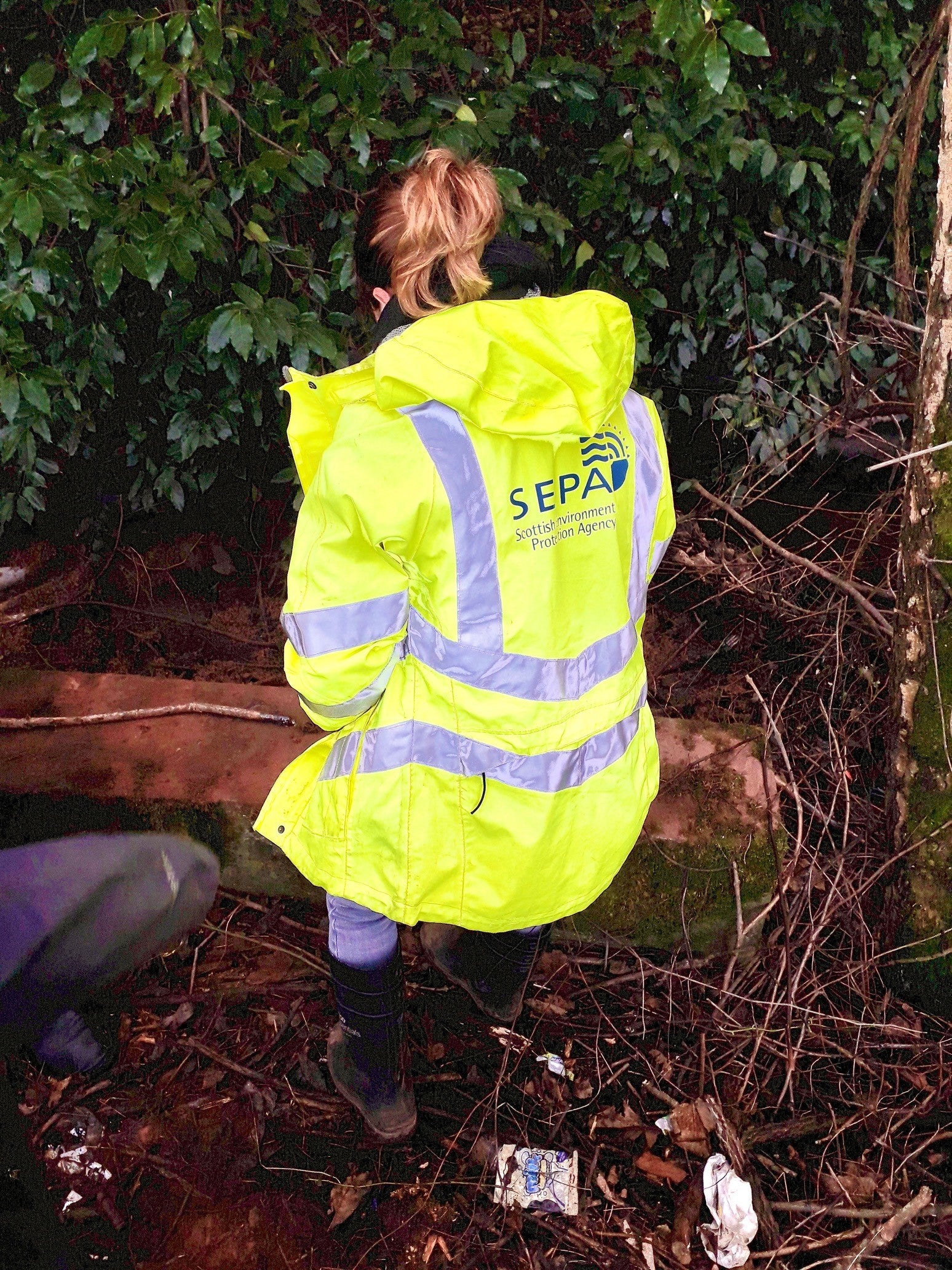River pollution clean up under way amid concerns for wildlife
People have been advised not to let their dogs go in the River Esk at Musselburgh.

Your support helps us to tell the story
From reproductive rights to climate change to Big Tech, The Independent is on the ground when the story is developing. Whether it's investigating the financials of Elon Musk's pro-Trump PAC or producing our latest documentary, 'The A Word', which shines a light on the American women fighting for reproductive rights, we know how important it is to parse out the facts from the messaging.
At such a critical moment in US history, we need reporters on the ground. Your donation allows us to keep sending journalists to speak to both sides of the story.
The Independent is trusted by Americans across the entire political spectrum. And unlike many other quality news outlets, we choose not to lock Americans out of our reporting and analysis with paywalls. We believe quality journalism should be available to everyone, paid for by those who can afford it.
Your support makes all the difference.Specialists are working to clean up a river pollution incident thought likely to have originated from material in a manhole.
The alarm was raised on Friday when an East Lothian Council countryside ranger spotted an “unusual residue” that seemed to be discharging into the River Esk at Musselburgh.
Local people reported “heartbreaking scenes” – with birds such as swans covered in the substance and trying to clean themselves – and described an “overwhelming” smell in the area.
The Scottish Environment Protection Agency (Sepa) launched an investigation and traced the likely source, a manhole filled with an unknown material leading to a watercourse.
By Saturday afternoon, Sepa said they were confident that it was no longer discharging into the water and East Lothian Council teams put absorbent pillows in place on Sunday morning to protect the watercourse.
Authorities advised people not to let their dogs go into the water as a precaution.
Scott Crawford, Sepa’s national duty manager, said: “Across the last 72 hours, specialist officers from Sepa and East Lothian Council have been responding to a pollution incident in the River Esk at Musselburgh.
“Whilst investigations are ongoing, officers have identified the location of the pollution discharge and are confident that it is no longer discharging into the water environment.
“However, it may take time to dissipate with continued water discolouration and odour, which is expected to decrease in the coming days.
“Council officers deployed absorbent pillows in order to protect the watercourse and working together, we’ve arranging for a contractor to remove pollution material from the likely source – a manhole filled with as yet unknown material leading to a watercourse.”
He added: “We know this pollution incident has been very concerning for local communities and are very grateful to local people for their information, support and understanding during this incident.”
Some people took to social media to describe the scenes.
Alexa Morrison tweeted: “Heartbreaking scenes at the mouth of the Esk after the oil spill. Birds covered and trying to clean themselves, the river still fully slick with chemicals. Awful to see.”
Ian Andrews posted on Twitter: “The burn is still flowing, the Esk still smells of diesel and the wildlife continues to suffer. It’s not just the swans; a Kingfisher I saw this morning looked decidedly scruffy and soiled.”
The Scottish SPCA have also been at the scene of the incident and have taken one swan to their wildlife rescue centre.
Scottish SPCA senior inspector John Toule said: “We attended the River Esk in Musselburgh yesterday, after reports to our helpline of swans and geese covered in oil.
“On arrival we did not discover any of the birds to be coated in oil, but several swans had what looked like contamination along the neck. One swan was uplifted and taken to our National Wildlife Rescue Centre to receive the care it needs.
“All other birds were cleaning themselves and seem alert. We are continuing to monitor the situation closely and any birds that show signs of deterioration will be taken to our wildlife hospital.
“We would advise members of the public not to approach the birds.
“If you suspect an animal to be injured or in distress, please call our helpline on 03000 999 999.”
Sepa, supported by the council, are continuing to investigate the cause of the pollution, including how the material entered the manhole and watercourse.
Water samples, which will help identify the material, impact and potential source, have been taken for analysis at Sepa laboratories.
Sepa urged anyone with information to contact its 24 Hour Pollution Hotline on 0800 80 7060, via sepa.org.uk/report or to contact Crimestoppers anonymously on 0800 555 111.